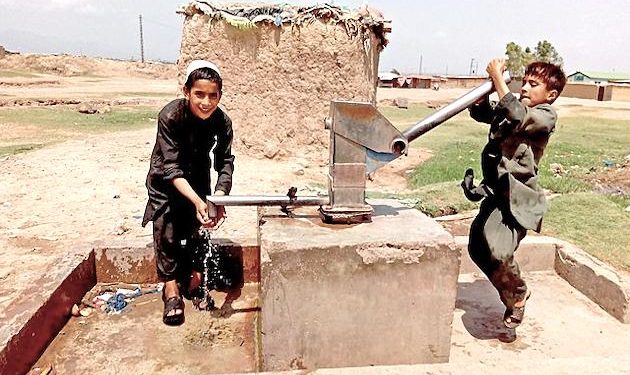- Since the Taliban takeover in mid-August, Afghans, driven by desperation, are streaming across the border into Iran in large numbers
- In the past three months, more than 300,000 people have crossed illegally into Iran, according to the Norwegian Refugee Council
- The Taliban takeover has accelerated the nation’s economic collapse, robbing millions of work and leaving them unable to feed their families
HERAT, Afghanistan: Since the Taliban takeover in mid-August, Afghans, driven by desperation, are streaming across the border into Iran in large numbers.
In the past three months, more than 300,000 people have crossed illegally into Iran, according to the Norwegian Refugee Council, and more are coming at the rate of 4,000 to 5,000 a day.
The Taliban takeover has accelerated the nation’s economic collapse, robbing millions of work and leaving them unable to feed their families. Once in Iran, most stay there to look for work, while a few hope to go farther.”We’re going to get to Europe,” said Haroun, a 20-year-old sitting in the bus next to his friend Fuad. Back in their village there is no work. “We have no choice, the economy here is a wreck. Even if it means our death on the way, we accept that,” as quoted by the Associated Press.
The European Union is now bracing for a potential wave of Afghans trying to reach its shores, at a time when EU nations are determined to lock down against migrants, in general.
Iran, which already hosts more than 3 million Afghans who fled their homeland during the past decades of turmoil, is stepping up deportations, sending 20,000 or 30,000 Afghans back every week. Those deported often try to return to Iran.
In Afghanistan, the exodus has emptied some villages of their men. In Jar-e Sawz, a village north of Herat, an elderly man was the only male left, after all the younger men left.
One smuggler in Herat – a woman involved in the business for two decades – said, “The country is destroyed so people have to leave,” she said, speaking on condition she not be named because of her work. “I feel like I’m doing the right thing. If some poor person asks me, I can’t refuse them. I ask God to help me help them,” she said, as reported by the Associated Press.
She charges the equivalent of almost $400 per person, but only about $16 up front, with the rest paid after the migrant finds work.
When the Taliban came to power on August 15, the main artery keeping Afghanistan’s economy alive – international donor funds – was severed. With the Taliban government unable to pay salaries, hundreds of thousands of state employees found themselves with no livelihoods. With funding for projects gone, many jobs vanished across the labor market.
“There is nothing here. There is no work and our families are hungry,” said Naib, a 20-year-old who was pausing with a group of migrants in a desolate area within sight of the Iranian border outside Herat. “We go crawling if we have to. There is no other choice,” he told the Associated Press.






